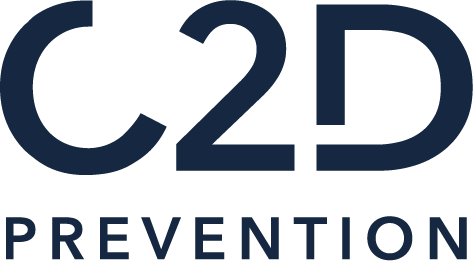WORKSHOP
Sleep & Recovery
Regain Energy for Sustainable Performance

In a professional world where pressure, intense rhythms, and constant demands have become the norm, the quality of sleep and recovery plays a central role in performance, focus, and risk prevention.
The “Sleep & Recovery” workshop offers a pragmatic and accessible exploration of the personal levers that help restore physical and mental energy. Through practical tools, experiential techniques, and opportunities for discussion, participants discover how to better manage pressure, prevent burnout, and implement beneficial routines for both personal and professional balance.
OBJECTIVE
CONTENT
- Topics covered: mechanisms of stress and fatigue, recovery techniques, cardiac coherence
- Lifestyle advice and regenerative routines
- Practical exercises
FORMAT
- Coaching : interactive discussions, exercises
MAKE PREVENTION A REFLEX!
REGISTER YOUR COMPANY NOW
and ensure a safer work environment for everyone!
Format & Target Audience
Available in-person or remotely (online version led by a certified VILT – Virtual Instructor-Led Training coach).
Designed primarily for in-person delivery and suitable for all employees and leadership levels.
Ideal group size: 6 to 12 participants to ensure interaction, customisation, and meaningful exchanges.
Learning Objectives
- Gain a better understanding of how stress mechanisms affect recovery and alertness.
- Identify signs of overload, chronic fatigue, and sleep debt.
- Practise active recovery and deep relaxation techniques.
- Build a personal action plan for healthier sleep hygiene.
- Encourage short and effective recovery practices in professional settings (power naps, restorative breaks, etc.).
Learning Methods
- Alternation between short theory segments and body-based practices.
- Moments for group sharing and individual reflection.
- Use of visual and playful tools to aid retention.
- Led by a coach trained in health prevention, stress management, and distance learning (VILT).
Depending on the time available
Workshop Programme
1Understanding the Mechanisms of Stress and Fatigue
An interactive introduction to explore:
- Different types of stress (acute, chronic, etc.) and their physiological effects.
- Early indicators of overload and imbalance.
- The link between mental load, disrupted sleep, and reduced alertness.
Objectives : Create awareness and make sense of personal experiences.
2Immersion in Recovery Practices
- Learning cardiac coherence breathing.
- Physical release exercises.
- Positive visualisation to calm the mind.
3Lifestyle & Regenerative Routines
Small group discussions and collaborative work to:
- Identify barriers to quality rest.
- Share tips and good practices (power naps, bedtime rituals, sleep-supportive nutrition, etc.).
- Introduce the “5Rs Method”: Rest, Respiration, Slowing Down, Recovery, Regularity.
Objective : Build lasting, adaptable recovery habits.
4Fatigue & Safety: A Critical Link
Real-life cases and testimonials to understand:
- The impact of sleep debt on decision-making, responsiveness, and safety.
- Heightened risks of drowsiness at work and how to detect early warning signs.
- The connection between poor recovery and human error.
Objective : Reinforce recovery as a key pillar of risk prevention.
5Action Plan
Participants leave with:
- A clear awareness of their personal recovery needs
- Tools to improve their daily routines (work/sleep/rest)
- Concrete and realistic commitments to implement starting the very next day
Objective : To make it easier to independently and sustainably apply the workshop’s takeaways.
Why choose
this workshop ?
The workshop uses an active, supportive, and experiential approach:
Alternation
between short theory segments and body-based practices
Moments for group sharing
and individual reflection
Use of visual
and playful tools to aid retention
Led by a coach trained in health prevention
stress management, and distance learning (VILT)
Conclusion & Call to Action
Sleep is not a luxury—it is a strategic component of workplace health. Offering your teams space
to reflect and experience recovery is giving them the tools to endure, thrive, and prevent burnout-related risks.
Interested in integrating this workshop into your training programme?
Contact our team to co-design a format tailored to your organisational needs.
